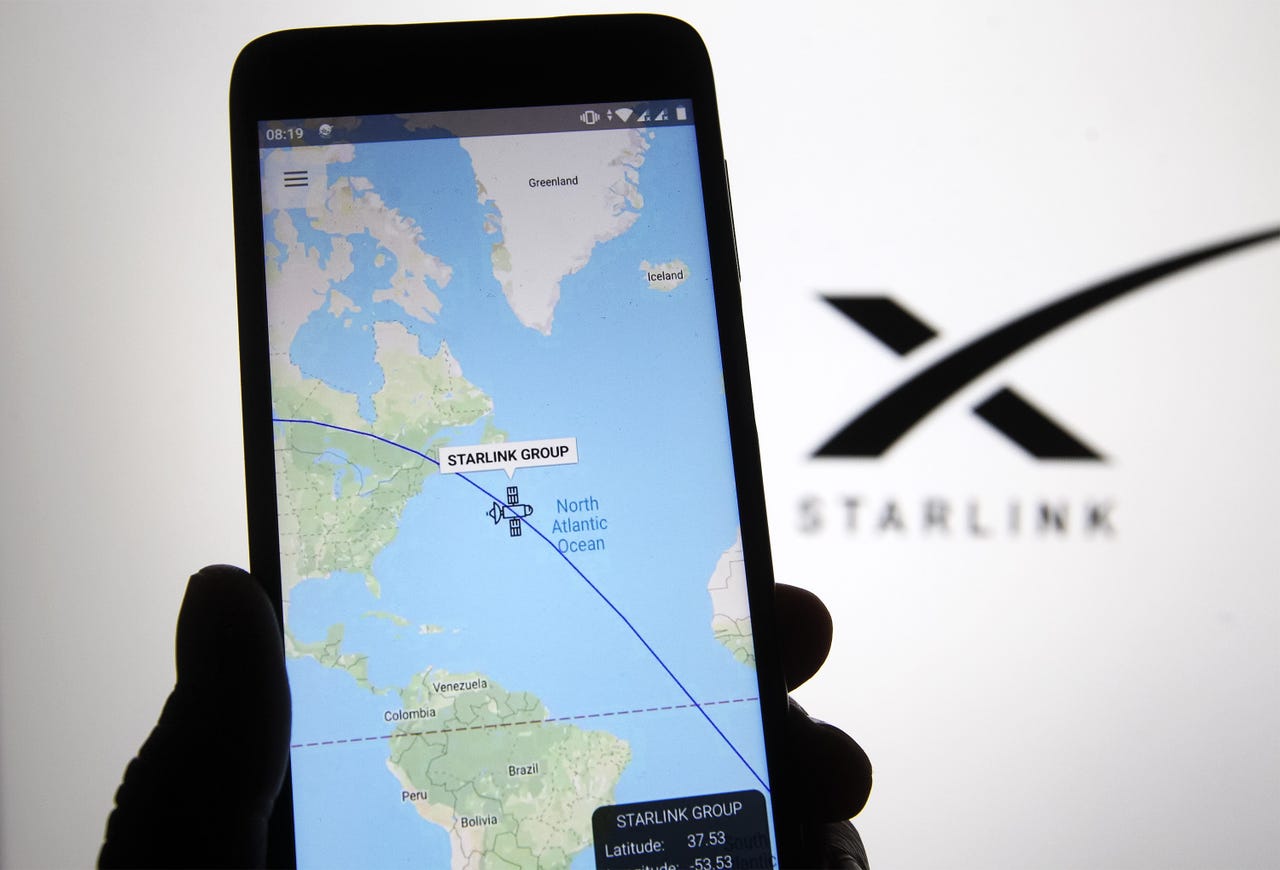































 Image: Getty/SOPA Images
Image: Getty/SOPA Images Starting today, Starlink is accepting orders on its website for its new Flat High-Performance Starlink -- the satellite dish designed for in-motion vehicles such as RVs. Starlink, the broadband division of Elon Musk's company SpaceX, will begin delivering the new hardware in December 2022.
With the new antenna, consumers will be able to take advantage of enhanced GPS capabilities in addition to high-speed, low-latency internet while their vehicle is actively moving.
There is a one-time hardware cost of$599 and a pay-as-needed$135 monthly cost for the RV service. Since you are billed in one-month increments, you can pause and resume the service whenever you'd like without any additional fees -which is especially useful for individuals who use RVs for occasional travel.
Also: What is Starlink? Everything you need to know about Elon Musk's satellite internet service
The new Starlink hardware is designed for permanent installation onto your vehicle and can resist harsh outdoor environments and challenging weather. If you would prefer portable use, there is also the option of a Standard Starlink dish.
The Standard Starlink for RVs has a portable design that can be easily broken down and set up for connectivity on the go. The product can get you online within minutes after setup.
The connectivity for both the standard and in-motion Starlink antennas relies on the coverage capacity for that specific location and a clear view of the sky. The Starlink Connectivity Map shows the world map with areas designated as high capacity, low capacity and no coverage.
Starlink users can expect high-speed, low-latency internet connection in "High Capacity" areas. However, areas marked as "Low capacity" will have notably slower speeds, especially during times of peak usage.
Before taking the plunge, it is a good idea to check the map and make sure that the areas you intend to use the Starlink devices in have a good connection. Currently, there is coverage in all of the US and Mexico, and connectivity will only continue to expand.
The company has more than 3,500 satellites in orbit and continues to expand it with near-weekly launches.
 Tags chauds:
Innovation et Innovation
Les transports
Tags chauds:
Innovation et Innovation
Les transports